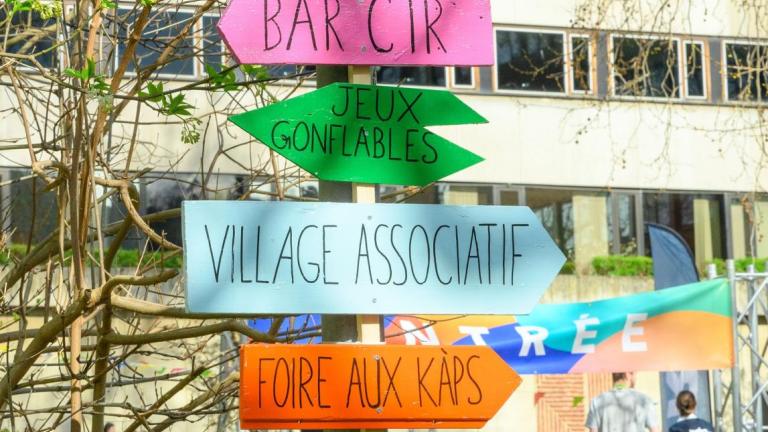The career path of female students is often associated with their academic commitment, i.e. their performance in assessments and their serious involvement in studies. However, there is no denying that extra-academic commitment, i.e. students' involvement in activities outside the strictly academic framework, is an essential dimension of their overall training and more specifically of the development of soft skills.
Valuing the importance of this commitment is therefore a policy axis developed at the University of Namur, as a university education is also nourished by practical experience, social involvement and personal development.
The different types of commitment

Student General Meeting (SGM)
The official body representing and animating the students of the University of Namur, it represents them at the various decision-making levels of UNamur and manages the animation of the Namur campus.
Student Council
Each year, 40 students from the University's various faculties are elected as student representatives. They take part in debates, hold working groups (GT) on various themes, with the aim of representing more than 7000 students.
Project Kots (KàPs)
A gathering place for a group of students, usually between 6 and 9 people. In addition to living together in the same community housing, students carry out a project close to their hearts.
Circles and associates
A space made available to students within each Faculty, it designates, by extension the students responsible for managing the space and organizing activities for members of the university community.
Inter-Regional Council (CIR)
Charged with overseeing the smooth running of christening activities (bleusailles) as well as organizing the latter with the regionals. In addition, the CIR keeps an eye on the various activities of the regionals and their internal workings.
The magazines
Spectacles featuring their most iconic teachers.
Student companies
JEN, CSLabs, ...
Other activities
Course delegates, participation in the institution's decision-making bodies, etc.
The 3 principles of the assessment procedure
- The skills highlighted must have been scientifically selected. A partnership with the University of Ottawa has been concluded for the use of their uOCompétences model.
Reflective analysis as a method of producing assessable objects makes it possible
- to put the student at the heart of the device and remain aligned with the objectives of developing personal skills (experienced intimately, and therefore difficult to assess externally) and
- to make up for the lack of supervisors needed if we were to resort to external assessment.
- The scheme concludes with an appendix to the diploma that the student can use to advantage in job interviews, resume writing, etc.
The 5 stages of the assessment procedure
Step 1
An initial training course is proposed, the aim of which is to better identify the nature of transversal competencies. We will use, with the agreement of the University of Ottawa, their uOCompétences model. Students will be provided with theoretical explanations and a range of application exercises. This part will need to be validated (indicative assessment) in order to move on to stage 2.
Stage 2
A second training course is proposed, the aim of which is to introduce students to the mechanisms of reflective writing. We will use research developed within the University of Namur (How to support the reflective approach? | De Boeck Supérieur). Students will be provided with theoretical explanations and a whole series of application exercises. This part will need to be validated (indicative assessment) in order to move on to stage 3.
Stage 3
An initial certificative task will be required of students. This will involve producing a reflective piece of writing highlighting the skills acquired, respecting the principles acquired in the two training courses.
Step 4
A second certifying task will be asked of students. This will involve orally defending the written task before a jury, respecting the principles acquired in both training courses.
Step 5
Once both tasks have been validated, an official attestation will be issued by the University accompanying the reflective writing. This attestation will be appended to the student's diploma.
The team
The project is the responsibility of the Vice-Rector for Student Affairs. He surrounds himself with members of the departments (VéCU, ADEN, ADCOM) according to the relevance of the skills they provide.

